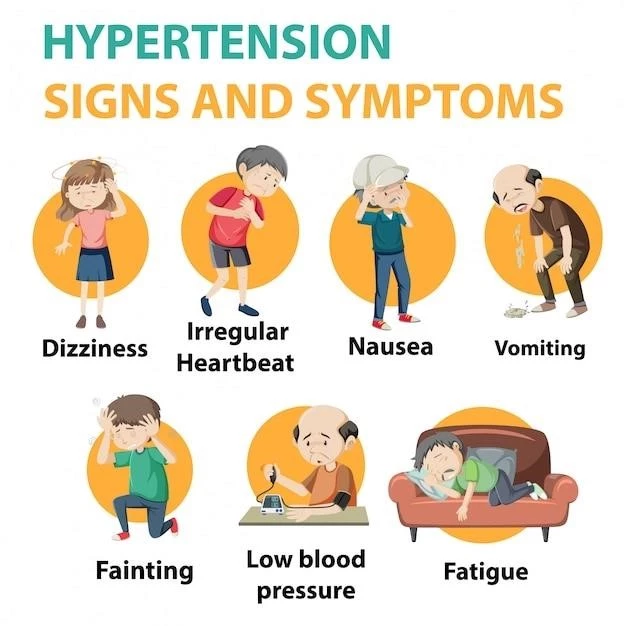Understanding Hay-Wells Syndrome Recessive Type
Hay-Wells Syndrome Recessive Type is a rare genetic condition with distinct characteristics. This article provides an in-depth look at the disease‚ including its genetics‚ mutation‚ symptoms like skin and nail abnormalities‚ prognosis‚ and available treatments.
Introduction to Hay-Wells Syndrome Recessive Type
Hay-Wells Syndrome Recessive Type‚ also known as AEC syndrome (Ankyloblepharon-Ectodermal Defects-Cleft Lip/Palate)‚ is a rare genetic disorder that affects various systems in the body. It is characterized by skin abnormalities‚ nail abnormalities‚ abnormal hair growth‚ and cleft lip/palate.
This syndrome is caused by mutations in the TP63 gene and follows an autosomal recessive pattern of inheritance. The condition can lead to a range of health issues‚ including recurrent infections‚ vision problems‚ hearing loss‚ and speech difficulties.
Individuals with Hay-Wells Syndrome Recessive Type require specialized care to manage their symptoms and improve their quality of life. Understanding the genetic basis‚ common symptoms‚ associated health issues‚ available treatments‚ and prognosis of this syndrome is crucial for effective management and support;
Condition Overview
Hay-Wells Syndrome Recessive Type is a rare genetic disorder that affects multiple systems in the body. This syndrome‚ caused by mutations in the TP63 gene‚ presents with a combination of distinct features such as skin abnormalities‚ nail abnormalities‚ cleft lip/palate‚ and abnormal hair growth.
Individuals with Hay-Wells Syndrome may experience recurrent infections due to immune system issues‚ vision problems leading to vision impairment‚ hearing loss affecting auditory function‚ and speech difficulties impacting communication;
Due to the complex nature of this condition‚ a multidisciplinary approach involving dermatologists‚ geneticists‚ immunologists‚ ophthalmologists‚ audiologists‚ speech therapists‚ and other specialists is often required to provide comprehensive care and management for individuals affected by Hay-Wells Syndrome Recessive Type.
Genetics and Inheritance
Hay-Wells Syndrome Recessive Type is primarily caused by mutations in the TP63 gene. This gene provides instructions for making a protein that plays a critical role in the development of ectodermal tissues‚ which include the skin‚ nails‚ hair‚ and teeth.
The syndrome follows an autosomal recessive pattern of inheritance‚ meaning that an individual must inherit two copies of the mutated TP63 gene ⎯ one from each parent ⎯ to manifest the condition. If both parents carry one copy of the mutated gene‚ they are considered carriers and are at risk of passing the syndrome to their children.
Understanding the specific genetic mutation associated with Hay-Wells Syndrome Recessive Type is essential for genetic counseling‚ family planning‚ and potential future advances in targeted treatments aimed at addressing the underlying genetic cause of the disorder.
Mutation Associated with the Syndrome
The mutation associated with Hay-Wells Syndrome Recessive Type involves changes in the TP63 gene‚ specifically affecting the production of the p63 protein. This protein is crucial for regulating the development of various tissues‚ particularly the ectoderm.
TP63 gene mutations disrupt the normal functioning of the p63 protein‚ leading to the characteristic features of the syndrome‚ such as skin abnormalities‚ nail deformities‚ and cleft lip/palate. Different types of mutations within the TP63 gene can result in variable expressivity and severity of symptoms among affected individuals.
Research into the specific genetic alterations linked to Hay-Wells Syndrome is ongoing‚ aiming to deepen our understanding of the molecular mechanisms underlying the disorder and potentially uncovering targeted therapeutic strategies to address the genetic root cause of this rare genetic syndrome.

Rarity of the Syndrome
Hay-Wells Syndrome Recessive Type is considered a rare genetic disorder‚ with only a limited number of documented cases worldwide. The prevalence of this syndrome is relatively low compared to more common genetic conditions‚ making it a rare and lesser-known medical entity.
Due to its rarity‚ Hay-Wells Syndrome may present diagnostic challenges for healthcare providers unfamiliar with the condition. Comprehensive genetic testing and clinical evaluation are crucial for accurately identifying individuals affected by this syndrome and initiating appropriate management strategies tailored to their specific needs.
Increased awareness among healthcare professionals‚ geneticists‚ and the general public can help enhance early recognition‚ diagnosis‚ and management of Hay-Wells Syndrome Recessive Type‚ ultimately improving the quality of life for individuals living with this rare genetic disorder.
Common Symptoms
Hay-Wells Syndrome Recessive Type is characterized by a range of common symptoms that affect various systems in the body. These symptoms include skin abnormalities like thin skin‚ nail abnormalities such as dystrophic or absent nails‚ and cleft lip/palate.
Individuals with this syndrome often experience abnormal hair growth patterns‚ ranging from sparse hair to excessive hair in certain areas. Recurrent infections due to immune system dysfunction are common‚ impacting the overall health and well-being of affected individuals.
Other common symptoms of Hay-Wells Syndrome include vision problems‚ which can lead to vision impairment‚ hearing loss affecting auditory function‚ and speech difficulties that may manifest as communication challenges. Recognition of these common symptoms is crucial for early diagnosis and management of the syndrome.
Associated Health Issues
Individuals with Hay-Wells Syndrome Recessive Type may experience a variety of associated health issues affecting different parts of the body. Skin abnormalities and nail deformities can lead to increased susceptibility to skin infections and difficulties with nail growth and maintenance.
Abnormal hair growth patterns can cause cosmetic concerns and impact self-esteem. Recurrent infections due to immune system dysfunction may result in frequent illnesses and the need for vigilant infection management strategies.
Vision problems such as decreased visual acuity and ocular abnormalities can affect overall eyesight‚ while hearing loss may require interventions like hearing aids or other assistive devices. Speech difficulties can impact language development and communication skills‚ requiring speech therapy for improvement.
Treatment Options
Management of Hay-Wells Syndrome Recessive Type focuses on addressing the diverse symptoms and associated health issues that individuals may experience. Treatment strategies are individualized based on the specific needs of each patient and may involve a multidisciplinary approach.
For skin abnormalities‚ dermatological care can help manage skin conditions and prevent infections. Nail abnormalities may require specialized nail care techniques or interventions. Hair growth concerns can be addressed through cosmetic solutions or medical treatments.
Recurrent infections necessitate proactive immune system support and infection prevention measures. Vision problems and hearing loss may benefit from interventions like corrective lenses‚ hearing aids‚ or surgical procedures to improve sensory functions.
Speech difficulties can be addressed through speech therapy to enhance communication skills. Comprehensive care plans tailored to each individual’s unique combination of symptoms and health issues are essential for optimizing quality of life and functional outcomes for those living with Hay-Wells Syndrome.
Prognosis and Outlook
The prognosis for individuals with Hay-Wells Syndrome Recessive Type varies based on the severity of their symptoms and the effectiveness of treatment interventions. Early diagnosis and comprehensive management can positively influence the long-term outlook for patients.
While the syndrome presents challenges due to its multisystemic nature‚ advancements in medical care and supportive therapies offer hope for improved quality of life. Monitoring and addressing associated health issues promptly can help minimize complications and enhance overall well-being.
With ongoing research efforts aimed at better understanding the genetic basis and underlying mechanisms of Hay-Wells Syndrome‚ there is potential for future targeted treatments that address the root cause of the disorder‚ offering promising prospects for enhanced management and outcomes for affected individuals.
